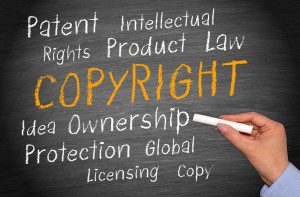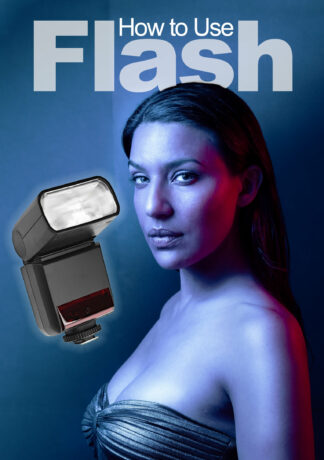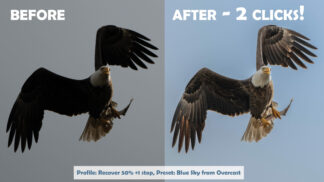
You take a beautiful photo that you proudly post on your social media. One day, you discover that your photo has been shared on someone else’s account. It’s getting hundreds—no, thousands—of likes! Your photo is going viral! You could be the next Grumpy Cat! But…the owners of that account didn’t credit you for your image. You’re crushed. You worked hard to develop your talent only to have the fruit of your labor stolen from you.
Copyright, infringement, violations, intellectual property, model release, commercial use—this word soup of legalese can be confusing or downright terrifying for uninitiated photographers. However, in the age of rapid digital photo sharing, legal violations of photographers’ rights are rampant. As a content creator, it’s important to be aware of your rights under the law as well as best practices to protect your property.
The purpose of this article is to introduce you to some of the key legal terms and ideas that can affect you and to provide reputable resources where you can find more information. This article deals broadly with US federal law and is not meant to be comprehensive; it’s a starting point. So bookmark this page and use it as a handy research tool the next time you have a question about your rights as a photographer. As always, if you have questions about your specific situation and you need legal advice, speak with an attorney in your area.

I’m a photographer, what’s this boring legal stuff got to do with me?
I’m glad you asked! Your photograph is a “creation of your mind” and, as such, is covered by a variety of US federal and state level laws dealing with intellectual property (“IP”). Like the author of a great American novel, you are the author of every photograph that you take and a bunch of IP laws automatically attach to those photographs to protect you from the unauthorized use of your property (with some exceptions, like work for hire.) This applies to any photo at all, whether it’s a sweeping landscape shot with made with $10,000 equipment or a blurry camera phone photo of your new puppy.
For a deeper dive into US IP laws, check out the Stanford University Libraries’ Copyright & Fair Use Center. This article explaining “Overview of Intellectual Property Laws” is a good place to start.
What’s copyright? Do I need to copyright my photos?
Intellectual property is generally protected by one of three mechanisms: patents, trademarks or copyright. In the case of photographs, it’s going to be copyright. Copyright protection under the federal law attaches as soon as the work is created, applies to both published and unpublished works and typically expires 70 years after the death of the author, or in this case, the photographer.
You may have heard of registering an image at the United States Copyright Office. While it’s not necessary to register your original work in order for copyright protections to attach to it, registration may give you additional benefits if your copyright is ever violated. For example, you must register a work in order to file a copyright infringement lawsuit. And you may be eligible for certain legal remedies, like statutory damages or attorney’s fees, if you successfully litigate the registered work. The Copyright Office has a useful FAQ section further explaining the benefits of registration, which I have linked below.
US Copyright Office Useful Links
- Main Page
- Frequently Asked Questions
- Circular 1, “Copyright Basics”
- Circular 40, “Copyright Registration for Pictorial, Graphic, and Sculptural Works”
Okay, now I understand unauthorized use of my images. But can someone else use my work legally?
Yes. There are several circumstances under which your image can be legally used, even without your knowledge or authorization.
Licensing your image is the most common way for photographs to be shared with permission. If you’ve ever uploaded pictures to a photo sharing site, social media or virtually anywhere else online, you’ve licensed your image. With a well-worded licensing agreement, you can limit how your photo is used, whom it’s used by and the length of the license. For example, check out Facebook’s Terms of Service regarding pictures you upload on the site:
 See the rest at https://www.facebook.com/terms
See the rest at https://www.facebook.com/terms
And here’s the comparable Terms of Service language from photo sharing website 500px:
See the rest at https://about.500px.com/terms/
It’s always a good idea to read the complete terms of service before uploading your images as there is a great deal of misinformation online about how these services can use your images.
Work made for hire (or “work for hire”) is work that is created in the context of an employer-employee relationship. Even as a freelance photographer, you may be hired to create commissioned work where the work for hire doctrine will apply. Work made for hire becomes the intellectual property of the person who commissioned the work, and not the photographer himself. This article by the Columbia Law School has more information on when the doctrine applies.
You can also transfer your copyright on an exclusive or non-exclusive basis. Like any other personal property, it can be transferred via a contract or even in a will. Unlike licensing your work, transferring copyright may cause you to lose your own rights to that work. The legendary fashion & portrait photographer, Annie Leibovitz, was sued for unpaid debts to a lender several years ago. Among other things, the lender reportedly sought to sell Ms. Leibovitz’s IP rights to her entire library of work, an asset potentially worth many millions of dollars, to satisfy the debt.
The Fair Use Doctrine is a broad (and often abused) tool for otherwise copyrighted material to be used legally. In order to be considered fair use, the copyrighted work must have been used either in (a) a parody or (b) in commentary or criticism. Journalists, educators and artists sampling other artists’ work may use the Fair Use Doctrine to share copyrighted work. Fair use is a heavily litigated area of the law and the Copyright Office’s Fair Use Index that tracks and summarizes relevant court decisions dealing with what is or isn’t fair use. The Stanford University Libraries has also created a useful summary of court decisions dealing with fair use of artwork.
Finally, your work may also end up in the public domain, which means that copyright laws do not apply to the image because it is owned by the public. For example, because copyright has expired or the copyright holder chooses to put the material in the public domain before then.
Um…I need a lawyer…
A network of state-level volunteer attorney organizations for the arts provides a variety of legal resources for photographers. These may include free (pro bono) or low-cost legal services for financially qualifying artists; informative articles & sample forms; and attorney referrals in your area. I’ve linked a few organizations below to get you started; if your state is not listed, a quick Google search should point you in the right direction.
California Lawyers for the Arts http://www.calawyersforthearts.org/
Florida Lawyers for the Arts http://www.artslawfl.org/
Georgia Lawyers for the Arts http://glarts.org/
Lawyers for the Creative Arts (Illinois) https://law-arts.org/
Volunteer Lawyers for the Arts (New York) https://vlany.org/
New Jersey Volunteer Lawyers for the Arts http://www.njvla.org/
Texas Accountants and Lawyers for the Arts http://talarts.org/
Finally, the American Society of Media Photographers offers a host of resources, including sample contracts and release forms.
I hope this has been a useful introduction to an important but often overlooked part of photography! If you have any ideas for future articles regarding photography and the law, please share them in the comments.
Anushila is a licensed attorney in the state of New York. Prior to becoming a full-time photographer, Anushila practiced securities litigation and regulatory enforcement law in New York City.
The information in this article is for general informational purposes only and does not constitute legal advice. If you have any questions about how the law applies to your specific situation, please consult a local lawyer.
Photo Credits:
Copyright: <a href=’http://www.123rf.com/profile_convisum’>convisum / 123RF Stock Photo</a>
Copyright: <a href=’http://www.123rf.com/profile_samuraitop’>samuraitop / 123RF Stock Photo</a>





